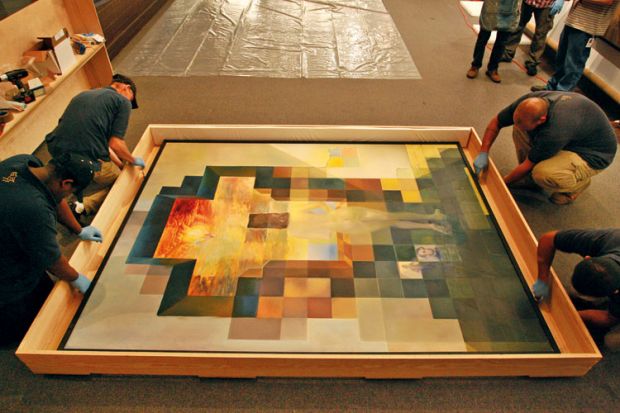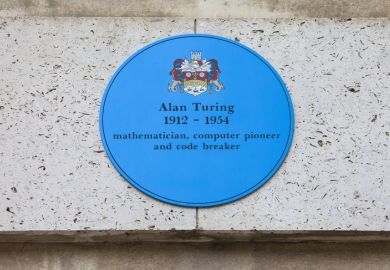Source: Corbis
Great unknown: there is no agreed definition of what the digital humanities are
The University of London’s School of Advanced Study has underlined its commitment to digital research through the appointment of new professors in both digital history and digital humanities.
Taking up the latter position in February is Lorna Hughes. When her role was advertised last year, shortly after a proposal (later withdrawn) to merge the Institute of English Studies into two other constituent institutes, concerns were expressed that the SAS might be withdrawing from more traditional forms of humanities research.
It was also asked why another centre for digital humanities was needed so close to the leading departments at University College London and King’s College London.
Both these concerns rest on a misunderstanding, said Barry Smith, the SAS’s pro-dean for central academic initiatives. “The school has a national role,” Professor Smith explained, part of which is to “offer leadership and new initiatives”.
“King’s and UCL teach digital humanities and offer degree programmes. We are in no way setting up a new institute or centre in competition with them but facilitating research in collaboration with them, and with other departments such as those at Durham, Nottingham and York,” he said. Since the funding for the new chair in digital humanities came from “a separate pot of money”, it would also not encroach on the other activities of the SAS.
“There is still no widespread agreement about what digital humanities are,” continued Professor Smith. “We want to lead the discussions and focus the leading players.”
Jane Winters, former head of digital publications at the SAS’s Institute of Historical Research, has been promoted to professor of digital history.
Professor Winters joined the IHR in 1996 and recalled telling the interview panel that she never used the web. Yet she soon went on to play a central role in the development of resources such as British History Online, a huge collection of primary and secondary sources that enjoys well over a million page views a month and is now being enhanced and expanded.
Her new role, she said, will require her to “develop new research projects, many of them collaborative, and enhance the resources we have got”. She will also continue her involvement in projects designed to support historians in “handling born-digital big data – making the archive of UK webspace available without overwhelming them”.
“It is also about feeding in historians’ concerns, so that resources are driven by the research questions rather than by what the technology allows us to do,” she added.
Register to continue
Why register?
- Registration is free and only takes a moment
- Once registered, you can read 3 articles a month
- Sign up for our newsletter
Subscribe
Or subscribe for unlimited access to:
- Unlimited access to news, views, insights & reviews
- Digital editions
- Digital access to THE’s university and college rankings analysis
Already registered or a current subscriber? Login





